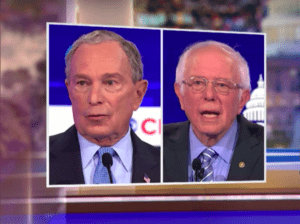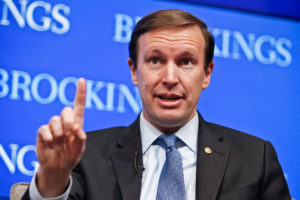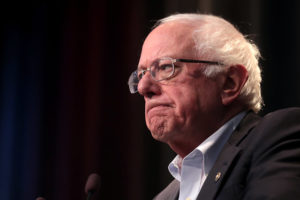Beyond Colbert: Why We Need Progressive People of Color on TV
The fact is that although there may be marginally increasing diversity among the casts of fictional television series, there are not nearly enough black and brown voices presenting or analyzing the news on television or in newsrooms, in broadcast or print, in traditional media or new media.There are not nearly enough black and brown voices presenting or analyzing the news on television or in newsrooms, in broadcast or print, in traditional media or new media. MSNBC's Melissa Harris-Perry appears on "Totally Biased with W. Kamau Bell" in this still from YouTube.
MSNBC's Melissa Harris-Perry appears on "Totally Biased with W. Kamau Bell" in this still from YouTube.
When Comedy Central’s Stephen Colbert was announced as the replacement for David Letterman on CBS’ “Late Night,” progressives celebrated while conservatives retched. But few questioned the assumption that a white male would succeed Letterman.
The announcement of Colbert’s move to network television came within weeks of a now-infamous Twitter campaign calling for the cancellation of “The Colbert Report.” Suey Park, who started #CancelColbert on Twitter in response to an uncontextualized tweet from “The Colbert Report’s” account, was lambasted all around for “not getting” a satirical joke that employed racist Asian themes.
The tweet in question — “I am willing to show #Asian community I care by introducing the Ching-Chong Ding-Dong Foundation for Sensitivity to Orientals or Whatever” — was a satirical remark quoted from Colbert’s show, aimed at the racism of football team owner Daniel Snyder’s creation of the Washington Redskins Original Americans Foundation. But the fact that a white television host believed he had the right to use racist stereotypes to expose racism in the first place indicates the limitations of TV’s current lineup.
Park, writing in her defense on Time.com, eloquently said, “As women of color, we are rarely heard unless we bend to the conduct codes of whiteness — a way of speaking and operating that massages power.” Although I have enjoyed my share of Colbert jokes and appreciate the exposure he expertly brings to progressive issues, I share Park’s frustration with a collective liberal defense of white voices that believe it is not just acceptable to employ racist tropes in satire, but that it is their right.
Where are the voices on television news and commentary that represent progressive people of color? Our media landscape, tailored to the conservative rich white male view, will make some room for progressive whites, as evidenced by Colbert, his Comedy Central colleague Jon Stewart and MSNBC’s Chris Hayes and Rachel Maddow. It will even make room for people of color — as long as they are conservative or apolitical. With the exception of a tiny handful of hosts such as MSNBC’s Melissa Harris-Perry, the presenters of our news are utterly unrepresentative of this nation’s changing demographics and the general political perspectives of people of color.
Even personalities who do break through rarely last long. Take W. Kamau Bell for instance. The irreverent stand-up comic and unabashed progressive managed to break into cable television through FX’s “Totally Biased with W. Kamau Bell.” During his show’s run he covered cutting-edge political issues with humor, confronted issues of race head on and brought on numerous other comics representing communities of color. The show lasted just over a year despite favorable critical reception. Then FX moved the show to its new sister station FXX, which led to falling ratings and its cancellation.
The fact is that although there may be marginally increasing diversity among the casts of fictional television series (such as ABC’s “Scandal”), there are not nearly enough black and brown voices presenting or analyzing the news on television or in newsrooms, in broadcast or print, in traditional media or new media. As the media watchdog group Fairness and Accuracy in Reporting (FAIR) has pointed out in various studies over the years, white males dominate the guest lineups of broadcast television on both network and cable. No study is needed to point out that whites also dominate among hosts. Late-night hosts in particular have been exclusively white, with the exception of Arsenio Hall. Even venerable public broadcast institutions such as NPR and PBS are largely the dominion of whites.
Writing for FAIR, Janine Jackson pointed out that many new media outlets, realizing this glaring oversight, have created special sections for people of color. Huffington Post’s Black Voices and Latino Voices sections seem laudable, as are NPR’s Latino USA. But even the rabidly right-wing Fox News has realized the need to represent voices of color with the launch some years ago of Fox News Latino.
The problem with this approach is that segregating sections of the news aimed at people of color implies our issues are somehow separate or different. As the inevitable demographic shift turns the U.S. into a nation of nonwhites, issues that affect people of color increasingly become mainstream issues. And the impact of policies on people of color is a bellwether for the population at large — what affects whites often affects nonwhites disproportionately whether it is the recession, the drug war or attacks on women’s reproductive rights. On issue after issue, communities of color tend toward more progressive politics in general, and for this reason at least progressives should not just aspire to see a more diverse media landscape but demand it. As this conservative analysis fears, a more diverse America will mean less conservatism in the future. And this is a good thing.
Today’s media landscape faces multiple challenges including the coming flood of electoral advertising revenue as a result of the recent Supreme Court ruling on McCutcheon v. FEC, and an imminent merger between two giant telecommunications companies, Comcast and Time Warner. With the spaces for a free press narrowing each day and the unfettered dominance of moneyed interests in our electoral politics, an independent, diverse, representative media is absolutely crucial to our democracy now more than ever.
Right now my own community radio station, KPFK Pacifica, is attempting to break into the tightly controlled television market. Pacifica Network, one of the oldest and most venerable broadcast institutions in the country, has partnered with Free Speech TV, one of the very few television outlets showcasing progressive politics, in the hopes of bringing a greater diversity of voices to television. Without corporate backers to underwrite the project, we have turned to the public in the hopes that a hunger for more diverse news programming will drive ordinary people to crowdfund a campaign to televise the show that I host, “Uprising.” Written and produced by two women of color, our program is by no means representative of the entirety of racial, ethnic, immigrant and native communities of color in the U.S., but it is a good start to the conversation that progressives must have even as they celebrate Colbert’s move into a coveted network TV slot.
Television is where the majority of Americans obtain news and information. If democracy depends on informed decision making by the public, how information is presented, by whom and with what political bent, naturally shapes policies that affect us all. It is past time that personalities behind the microphones are people we all can relate to.
The campaign to televise “Uprising” hosted by Truthdig columnist Sonali Kolhatkar ends April 30. Donations are being accepted here.
Your support matters…Independent journalism is under threat and overshadowed by heavily funded mainstream media.
You can help level the playing field. Become a member.
Your tax-deductible contribution keeps us digging beneath the headlines to give you thought-provoking, investigative reporting and analysis that unearths what's really happening- without compromise.
Give today to support our courageous, independent journalists.






You need to be a supporter to comment.
There are currently no responses to this article.
Be the first to respond.